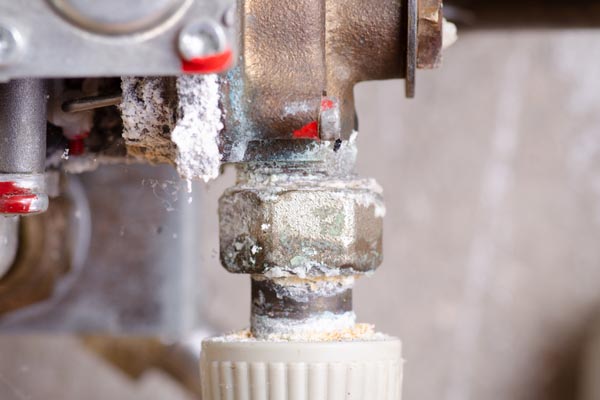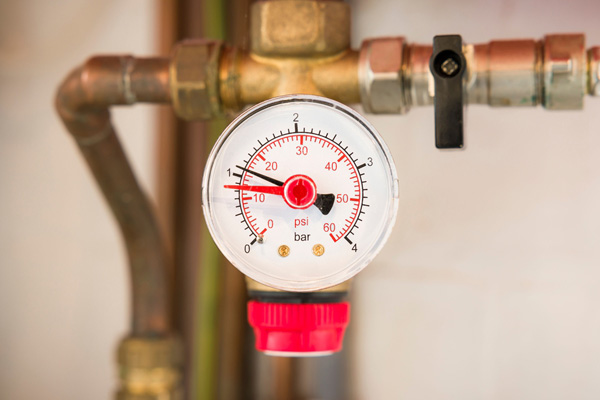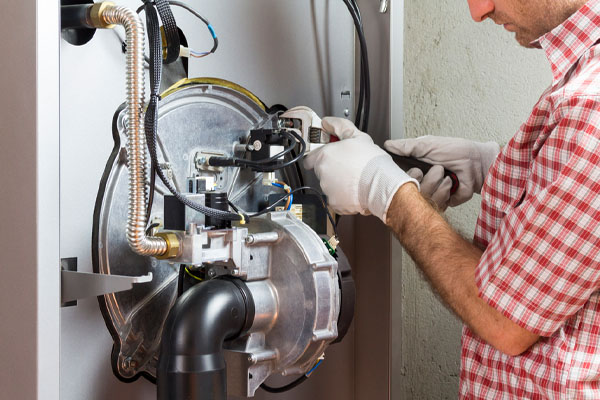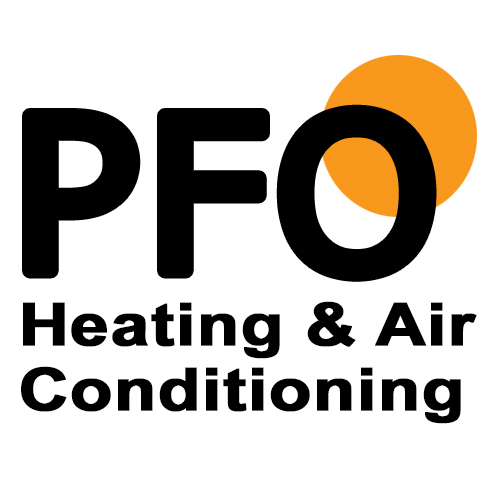
Experiencing boiler problems is always a challenging situation. The absence of essential heating and hot water in your home can be a significant inconvenience. Moreover, the risks posed by exposure to intense cold should not be underestimated, particularly for children and seniors. Gaining an understanding of frequent boiler issues enables you to respond swiftly, helping to prevent complete breakdowns.
This article delves into the most prevalent boiler problems that homeowners often encounter. We will delve into the typical causes of these issues and provide insights into potential solutions. Continue reading to learn how to effectively address these problems and restore your boiler to optimal functionality.
Top 10 Boiler Problems Homeowners Face
Contents
- 1 Top 10 Boiler Problems Homeowners Face
- 1.1 1. Leaking Boiler
- 1.2 2. Condensate Pipe Freezing
- 1.3 3. Boiler Failing to Provide Heating or Hot Water
- 1.4 4. Thermostat Not Communicating with Boiler
- 1.5 5. Reduced Boiler Pressure
- 1.6 6. Boiler Pilot Light Keeps Switching Off
- 1.7 7. Issues with Boiler Radiators
- 1.8 8. Unusual Noises from Your Boiler
- 1.9 9. Boiler Won’t Power On
- 1.10 10. Boiler Breakdown
- 2 Call PFO Heating & Air Conditioning for Your Heating Needs
In the following sections, we’ll guide you through the most frequent boiler problems many homeowners experience.
1. Leaking Boiler

A boiler leak usually stems from a faulty internal component like the pressure valve or pump seal. High system pressure often causes leaks from the pressure relief valve, while pump seal leaks may indicate wear over time.
Leaks around pipes suggest corrosion or installation issues. Consult a qualified HVAC contractor for accurate diagnosis and repair. For significant boiler problems, they may recommend installing a new boiler for efficiency and safety.
2. Condensate Pipe Freezing
This is a frequently encountered issue, especially during colder weather. This pipe moves condensate from your boiler to the external drain. In cold conditions, the condensate can freeze, leading to blockages. Homes with externally fitted condensate pipes or pipes in unheated areas like garages are particularly prone to this problem. Such blockages can force the condensate to back up into the boiler, potentially causing system malfunctions.
Fortunately, resolving a frozen condensate pipe issue can often be a straightforward task you can handle on your own. Applying insulation or lagging to the pipe is a common long-term solution to prevent freezing in the future.
3. Boiler Failing to Provide Heating or Hot Water

When your boiler fails to heat or provide hot water, it could be due to issues like defective valves, damaged diaphragms, airlocks, low pressure, or a malfunctioning thermostat.
To check for low pressure, see if the gauge reads below 1, indicating that repressurization is needed. For thermostat problems, follow the manufacturer’s troubleshooting guide or contact them for help.
If these steps don’t fix the heating and hot water issues, it’s best to consult a skilled HVAC contractor, as complex problems like faulty motorized valves or damaged diaphragms require professional repair.
4. Thermostat Not Communicating with Boiler
Ensure your thermostat is adjusted for daylight saving time changes. If your boiler remains unresponsive, it may point to damaged or outdated thermostat controls, but check a few things first.
Start by replacing the thermostat batteries, a commonly missed step. Then, move the thermostat nearer to the boiler to enhance connectivity and check for interference. If these actions don’t help, consult the instruction manual or contact the thermostat manufacturer for further assistance.
5. Reduced Boiler Pressure

To effectively gauge your boiler’s pressure, check the built-in pressure gauge; optimal operation is around 1.5 bar, with issues arising below 1 bar.
Boiler low pressure can be caused by leaks, recent radiator bleeding, or faulty components. Check for leaks without opening the boiler. If there’s a leak, contact an HVAC contractor; if not, consider repressurizing the boiler yourself, though professional assistance is advised.
6. Boiler Pilot Light Keeps Switching Off
Older boilers rely on a constant pilot light for ignition. If it frequently goes out, it could be due to a faulty thermocouple, debris accumulation, or draughts.
You can try relighting the pilot light by following your boiler’s manual. Ensure the gas is on and check other gas appliances to confirm there’s no supply issue. However, for safety, it’s best to contact a licensed HVAC contractor.
Modern boilers usually have electronic ignition, eliminating pilot light problems. If you’re frequently facing pilot light issues, it might be time to consider upgrading to a newer, more reliable model.
7. Issues with Boiler Radiators

When your radiators develop cold patches or other issues, it’s often due to air or sludge accumulation inside them, resulting in uneven heat distribution. These cold patches in different locations can point to various types of boiler problems. Notably, many radiator issues can be effectively addressed by bleeding them. To get a more precise diagnosis of your radiator’s problem, consider reaching out to an experienced HVAC contractor in your locality.
8. Unusual Noises from Your Boiler
While it’s common for boilers to emit some noise during operation, particularly at startup, unusual sounds like gurgling, banging, or whistling should not be ignored. They indicate boiler problems.
These sounds could indicate various issues, such as air in the system, a malfunctioning pump, low water pressure, or limescale accumulation, often referred to as “kettling.” If you encounter such noises, it’s wise to seek the expertise of a qualified HVAC contractor for a thorough examination and solution.
9. Boiler Won’t Power On
If your boiler fails to turn on, check if other appliances and power sources in your home are functioning. Following this, inspect your fuse box for any failed or tripped switches. If these steps don’t reveal the cause of the problem, it’s advisable to contact a trained HVAC contractor for a professional diagnosis and resolution.
Should your boiler power on but then quickly turn off, it might be due to low pressure or a blockage disrupting the system’s operation. Check the system’s pressure gauge; if it’s below 1, repressurizing the boiler might be necessary. If this doesn’t resolve the issue or if you suspect a blockage, seek assistance from a local HVAC contractor.
10. Boiler Breakdown

Neglecting the aforementioned boiler problems can ultimately result in a total boiler breakdown. Should this occur, promptly get in touch with an HVAC contractor for immediate intervention and repair.
Boilers can also fail beyond repair due to age and inefficiency. If you’re dealing with an old and inefficient boiler, investing in a new system is advisable. This ensures you have reliable access to heating and hot water. Moreover, a modern, energy-efficient boiler can potentially lead to significant savings on your energy bills.
It’s important to only conduct simple, low-risk checks on your boiler. Avoid attempting any repairs yourself, as this could pose serious dangers.
Call PFO Heating & Air Conditioning for Your Heating Needs
PFO Heating & Air Conditioning is a leader in providing top-notch heating and cooling solutions in the Greater Princeton, NJ area. Our team comprises highly qualified technicians, each certified and adept in delivering exceptional HVAC services, including tune-ups, repairs, installations, and replacements. They possess the expertise needed to service your HVAC system efficiently and effectively.
At PFO Heating & Air Conditioning, we’re committed to offering the most competitive prices for heating and cooling services. If you’re considering an HVAC system upgrade, we’re here to guide you to the best options that fit within your budget. Our focus is on ensuring energy efficiency, comfort, superior indoor air quality, and more. Contact PFO Heating & Air Conditioning today for a complimentary, in-home estimate and to schedule your appointment.
Click here to contact us now or call us at (800) 253-9001 to find out more! Click the link to view our service area.

Related Articles:



